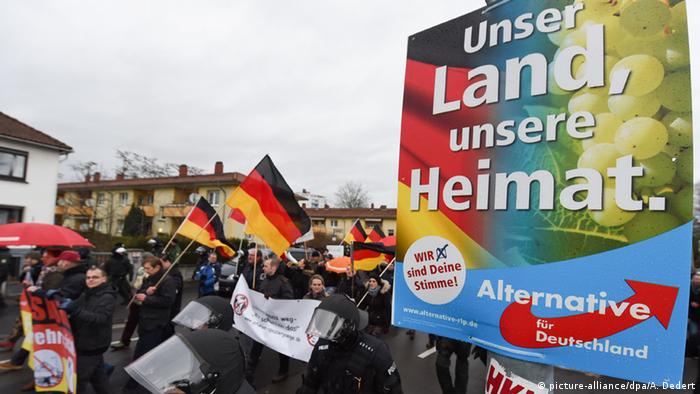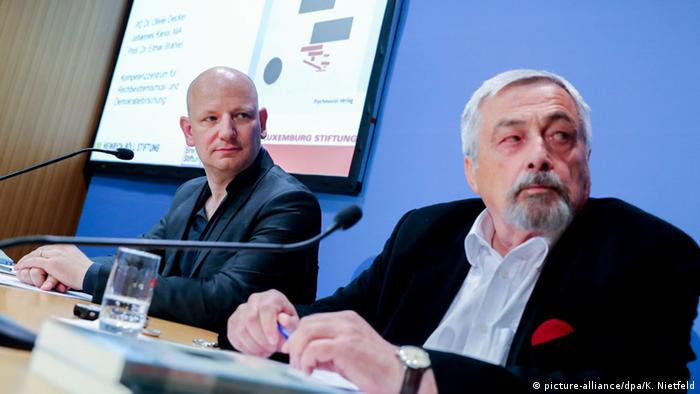Germany
Study: Islamophobia and violence in German society to grow
Reservations or dislike of Muslims, as well as the willingness to use violence to enforce one’s own interests to apply to firms in the Federal Republic. How is disinhibited, the German “the middle”?

AfD supporters at a Demonstration in mid-February in Mainz
Resentment against Muslims have increased significantly in Germany. The findings of a representative survey, the scientists Oliver Decker and Elmar Brähler, University of Leipzig presented in Berlin. Half of the population was, therefore, to feel “by many Muslims ( … ), sometimes like a Stranger in his own country”. 2014, it had been 43 percent. More than 40 percent of the citizens are of the opinion that Muslims should be prohibited the immigration to Germany (2014: 36.6 percent).
Critical also to Sinti, Roma and Homosexuals
Also, compared to other minority respondents were significantly more critical than in previous studies. The percentage of those who believe that Sinti and Roma are prone to crime, rose from 44.2 to 58.5 percent. About 80 percent of the respondents wished also that “the state should not be in the examination of asylum applications generous”. (2009: 25.8%). Almost 60 percent believe that the majority of asylum seekers feared to be in your home country.

Young Muslim to break the inside in the case of a public fast on Monday in Berlin
The percentage of those who hold homosexuality to be immoral, has risen from 15.7 to 24.8 percent. 36.2 percent, according to the study, marriages should not be allowed between two women or two men (2009: 29.4%). Particularly, such positions are distributed according to the study, among supporters of the right-wing populist party AfD.
2420 people between the ages of 14 and 93 years, interviewed
General right-wing attitudes, such as General xenophobia, or a trivialization of Nazism remained according to the investigation on a similar level as in previous years. People with quite extreme settings are, however, increasingly willing to enforce their interests, to use force, explained the authors. To observe an increasing polarization and radicalization in Germany.
The Leipzig researchers investigate, since 2002, every two years, in representative surveys of right-wing attitudes in society. The current “mid”-study was created in cooperation with the Heinrich-Böll-Foundation, the Rosa-Luxemburg-Foundation and the Otto-Brenner-Foundation, the authors surveyed for 2420 citizens between the ages of 14 and 93 years.

The two conductor of the Leipzig study, Oliver Decker (l.) and Elmar Brähler
Thereafter, the differences in the extreme right – wing attitude between East and West Germany are not particularly large. As a foreigner, hostile, or 22.7 percent of the respondents apply in the East, in the West, there are 19.8%, nationwide 20.4 percent. “Although there is no increase in extreme right-wing attitudes, but in comparison to the study two years ago, groups that are law set extremely advocate more violence as a means the interests of enforcement,” said Decker from the competence center for right-wing extremism and democracy research at the University of Leipzig.
In contrast, a clear majority of German society, refuse to quite extreme Thinking and violence to a part of strictly and have trust in democratic institutions. The conclusion of the researchers: in General, the political attitudes of the German drift apart more and more.
sti/mak (dpa, epd, kna)